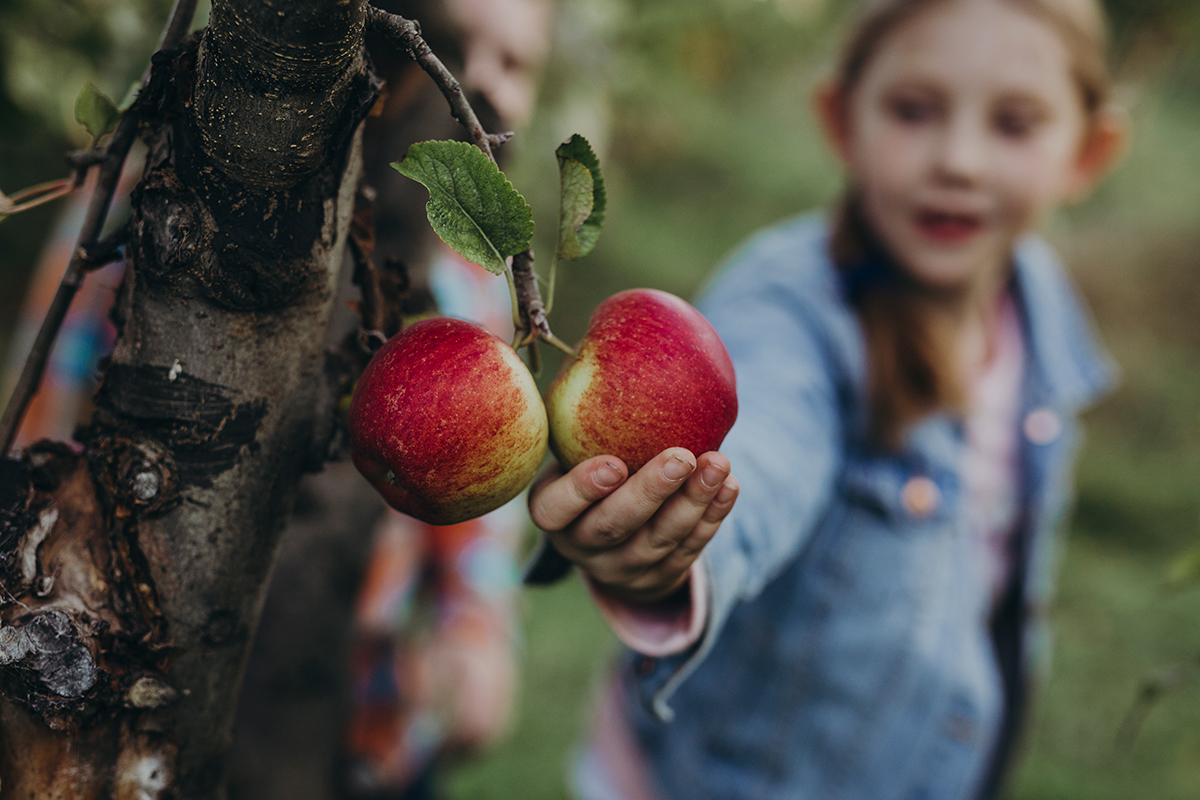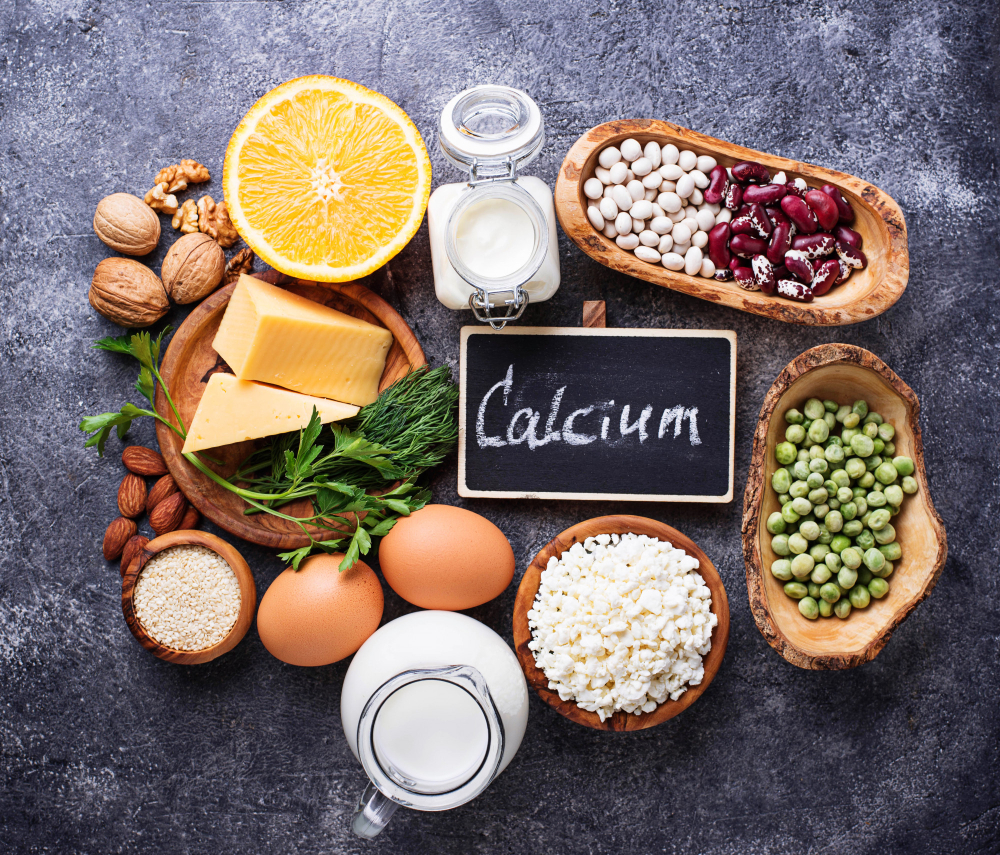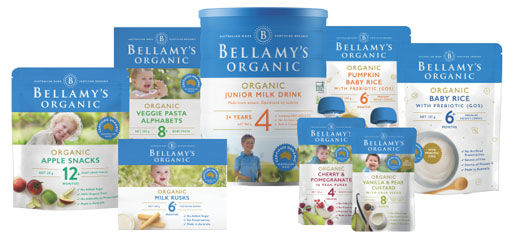Understanding Organic
1. What does organic mean?
When a food or product is organic, it means the production or manufacturing of that product must follow a strictly defined set of rules that ensures it is produced as nature intended. When it comes to food, organic foods must comply with a number of requirements in order to then receive certification. These include:
- Organic manufacturing – all food manufacturing sites must meet organic certification requirements and not manufacture non organic (conventional foods) on the same site. Regular audits are conducted to ensure regulatory requirements are met.
- Organic farming – all farms that provide the raw ingredients for organic foods such as milk, and fresh produce must also be certified organic. Regular audits are conducted to ensure regulatory requirements are met.
- Organic foods must be free from the following:
- Genetic Modification (GMO)
- No artificial preservatives
- No artificial colours and flavours
- No synthetic pesticides or fertilisers
- No added hormones
- No antibiotics
The regulatory bodies also have a list of allowable ingredients that can be considered for any organic food manufacturing and there are also some ingredients that are prohibited from use and would void organic certification if they were used. Organic food can be fresh fruits and vegetables, and it can also include packaged foods sold in most supermarkets or local grocers. However the product is sold, if it is certified organic, it must comply with the rules above.
There are two regulatory bodies in Australia that provide certification to organic products providing they meet all criteria.
- Australian Certified Organic (ACO)
- National Association for Sustainable Agriculture, Australia(NASAA)
Whilst you do not have to be dual certified to claim organic certification, there must be the Australian Certified Organic logo on packaging which has the logos below.

It is important to look out for the organic certification logos as assurance that you are purchasing an organic product. Some products available in the supermarket may state “made with organic ingredients” but this does not mean the product is certified organic. These logos provide assurance to the consumer that you are buying the real deal.
2. Where can you find organic food?

3. Is organic food better for your baby?
There are now a number of research papers which look at the difference between conventional and organic farming practices on the health benefits of individuals. Whilst this research is evolving, we have some interesting facts about organic produce that we know so far:
- Large study conducted in 2014 looked at conventional versus organic milk nutrient profile and found there to be more omega 3 fatty acids in organic milk compared with conventional. In addition, they found there to be a better ratio of omega 6 to omega 3 (lower) which favours good long term health outcomes
- Large study looking at organic produce found there to be higher levels of many antioxidants and higher vitamin E in organic produce compared to conventional produce.
- The same study also found there to be higher levels of a heavy metal called cadmium in conventional crops due to the type of pesticides and fertilisers that are used. Cadmium has been linked to behavioural and cognitive impairments in children
This research highlights that consuming organic produce will help to minimise to consumption and exposure to toxic and synthetic chemicals found in fertilisers and pesticides. Whilst not a lot is know about GMO and its long term health effects, we hazard a guess that tampering with mother nature could be good for our babies, and we prefer not to experiment with our kids at Bellamy’s Organic.
4. Is organic rare?
Farmers can’t decide to become organic overnight. It takes a minimum of 3 years to convert an ordinary farm to a certified organic farm, and this indicates how long it takes to flush out all the nasty chemicals from the soil. There are absolutely no shortcuts to organic farming and for those wishing to convert their farms to organic in Australia, must follow the strict regulations imposed by ACO and NASAA to ensure that they can achieve and maintain certification long term. That’s why only 1% of the world’s farmland is certified organic. Organic products are now becoming readily available in the major supermarkets and can often be found in the health food and baby food aisles.
Summary
Organic food production is becoming increasing more popular as people become aware of the benefits of consuming food as nature intended. Organic foods can be found in most major supermarkets and the organic certification logos provide assurance to the consumer that they are purchasing a product that is free from synthetic and toxic chemicals, added hormones and antibiotics that could impact long term health, particularly in young children. Organic farming is rare with only 1% of the world’s farmland being certified organic, but with its rise in popularity, this statistic is sure to increase in years to come making organic products event more accessible to all.
Disclaimer: The content of this document is solely for educational purposes and should not be substituted for medical advice. You are solely responsible for forming your own opinions and conclusions on such matters and for making your own independent assessment of the information. Please consult your doctor if you are concerned about your baby’s health.
Featured post
-
05 Diet Plans That Are Good For Your Health
31/07/2022
-
Best Times to Sleep for Adults & Children
01/06/2022









